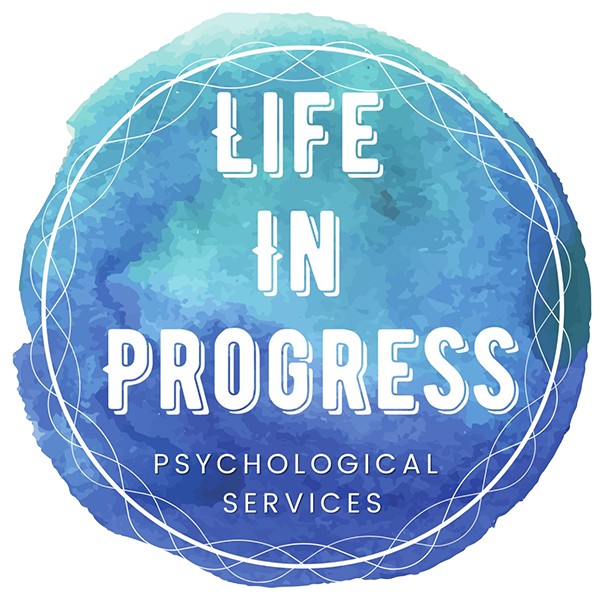Imposter syndrome is a common psychological phenomenon that affects individuals from diverse backgrounds and professions. It manifests as persistent feelings of inadequacy, self-doubt, and the fear of being revealed as a fraud, even when there is clear evidence of one’s competence and accomplishments. Imposter syndrome can significantly impact mental health, leading to increased stress, anxiety, and relentless self-criticism. In this blog, we will delve into what imposter syndrome is,
explore its connections to mental health, and provide actionable tips to start navigating and overcoming it today.

Understanding Imposter Syndrome
Imposter syndrome is characterized by individuals doubting their abilities and feeling like they don’t deserve their achievements, attributing their success to luck or external factors rather than personal competence. Despite evidence of their skills and accomplishments, they constantly fear being exposed as an imposter.
Specific Connections to Mental Health
Increased Stress and Anxiety: The fear of being discovered as a fraud can lead to constant stress and anxiety, as individuals struggle to meet perceived expectations and hide their perceived inadequacies.
Negative Self-Talk: Imposter syndrome often fuels a harsh inner critic, leading to a constant stream of negative self-talk that erodes self-esteem and self-confidence leading to a negative self-image and a sense of unworthiness.
Undermined Performance: Feeling like an imposter can undermine performance, as individuals may hesitate to take on new challenges or self-sabotage to avoid failure.
Avoidance of Opportunities: Individuals with imposter syndrome may avoid opportunities for growth and advancement, fearing they won’t be able to meet the demands of new roles.
Anxiety and Depression: Imposter syndrome can lead to chronic stress and anxiety, causing you to feel overwhelmed and emotionally exhausted. This constant strain can also contribute to the development of depression.
Burnout: The drive to continually prove oneself and meet unrealistic standards can lead to burnout, where you experience emotional and physical exhaustion, as well as a reduced sense of accomplishment.
Avoidance Behaviors: People with imposter syndrome may avoid new challenges or opportunities to avoid failure or the exposure of their perceived inadequacies.
Some Signs You are Experiencing Imposter Syndrome
- Chronic self-doubt and a persistent fear of failure.
- Difficulty accepting compliments or attributing success to luck or external factors.
- Anxiety and stress related to upcoming challenges or tasks.
- Comparing oneself to others and feeling inferior or inadequate in comparison.
Here are 14 Specific Strategies to Start Combating Imposter Syndrome
- Acknowledge Your Feelings: Recognize and accept that imposter syndrome is a common experience that many people face. Give yourself permission to feel vulnerable and acknowledge that your feelings are valid. Normalizing these feelings can help reduce their impact.
- Challenge Negative Thoughts: Become aware of your self-doubt and negative thoughts. When you catch yourself thinking, “I’m not good enough” or “I don’t deserve this,” challenge these thoughts with evidence of your achievements and capabilities.
- Reframe Your Narrative: Shift your focus from self-criticism to self-compassion. Remind yourself that everyone makes mistakes and experiences setbacks. Instead of dwelling on perceived failures, focus on the lessons learned and growth achieved.
- Set Realistic Goals: Break your larger goals into smaller, achievable steps. Gradual progress can build confidence and reduce feelings of overwhelm. Celebrate each milestone reached, and remember that progress is a journey, not a destination.
- Seek Support: Share your feelings of imposter syndrome with trusted friends, family, or a therapist. Sometimes verbalizing your feelings can help you gain perspective, receive encouragement, and help alleviate the burden of imposter syndrome.
- Recognize Success: Embrace positive feedback and compliments from others without downplaying your achievements. Internalize praise and use it to counter imposter syndrome thoughts.
- Stop Comparing Yourself: Avoid comparing yourself to others, as it can fuel feelings of inadequacy. Remember that everyone’s journey is unique, and you are on your own path.
- Keep a Journal: Write down your accomplishments, strengths, and positive feedback you receive. Revisit this journal regularly to remind yourself of your capabilities when self-doubt arises.
- Embrace Learning Opportunities: View challenges and new experiences as opportunities for
growth. Embrace a growth mindset, where mistakes are seen as chances to learn and improve. View failures as opportunities for growth and learning rather than confirmation of inadequacy. Everyone makes mistakes, and they do not define your worth. - Practice Self-Care: Prioritize self-care activities that nurture your physical and emotional well- being. Taking care of yourself helps build resilience and confidence.
- Visualize Success: Imagine yourself succeeding in challenging situations. Visualization can boost your confidence and help you approach situations with a more positive mindset.
- Limit Seeking Validation: Relying solely on external validation can reinforce imposter syndrome. Focus on your internal sense of accomplishment and fulfillment.
- Take Imperfect Action: Embrace imperfection and take action despite the fear of failure. Remember that taking small steps forward is better than staying stuck due to imposter syndrome.
- Be Patient with Yourself: Overcoming imposter syndrome is a process that takes time. Be patient with yourself and celebrate progress, no matter how small.

How Therapy Can Help
- Identifying Imposter Patterns: I can help you identify your unique imposter syndrome patterns and gain insight into how these patterns manifest in both thoughts and behaviors.
- Challenging Cognitive Distortions: I can assist clients in challenging and reframing negative thought patterns that contribute to imposter feelings. This process promotes a more balanced and realistic self-perception.
- Cultivating Self-Compassion: Therapy helps you cultivate self-compassion and practice self- kindness, encouraging you to embrace your imperfections and treat yourself with greater understanding and patience.
- Overcoming Fear of Failure: I can help you confront your fear of failure and develop healthier coping strategies to manage setbacks and mistakes.
- Setting Realistic Goals: Therapists can support clients in setting achievable goals and celebrating their progress, promoting a sense of accomplishment and self-worth.
- Learning to Accept Praise: Therapists can guide clients in accepting and internalizing compliments, fostering a more positive self-concept.
- Embracing Vulnerability: Therapy offers a safe space for you to explore vulnerability and share your feelings of inadequacy without fear of judgment.
Imposter syndrome is a common yet challenging obstacle that can significantly impact mental health and well-being. The feelings of inadequacy and self-doubt associated with imposter syndrome can lead to anxiety, depression, and burnout, affecting various aspects of one’s life, including personal relationships and career growth. Therapy offers healing and personal growth by helping you recognize and challenge imposter patterns, fostering self-compassion, and developing healthier coping strategies. By understanding its nature and impact on mental health, individuals can take proactive steps to navigate and overcome it. Remember, you are not alone in experiencing imposter syndrome, and with persistence and self-compassion, you can unmask the imposter within and cultivate a healthier and more confident sense of self.

